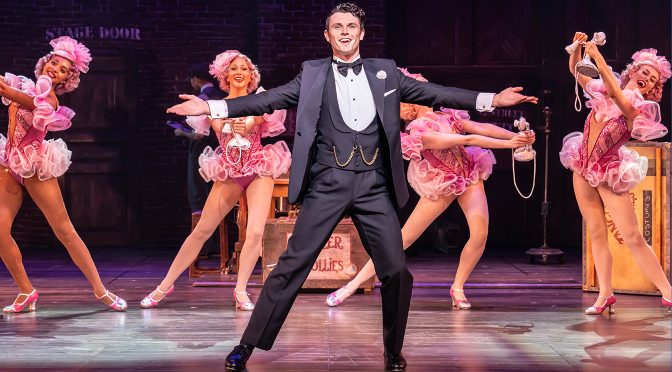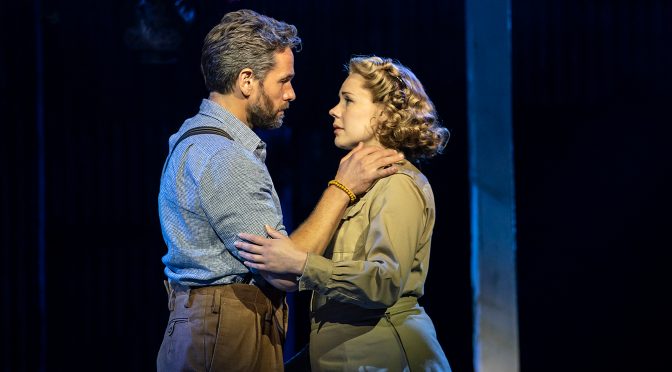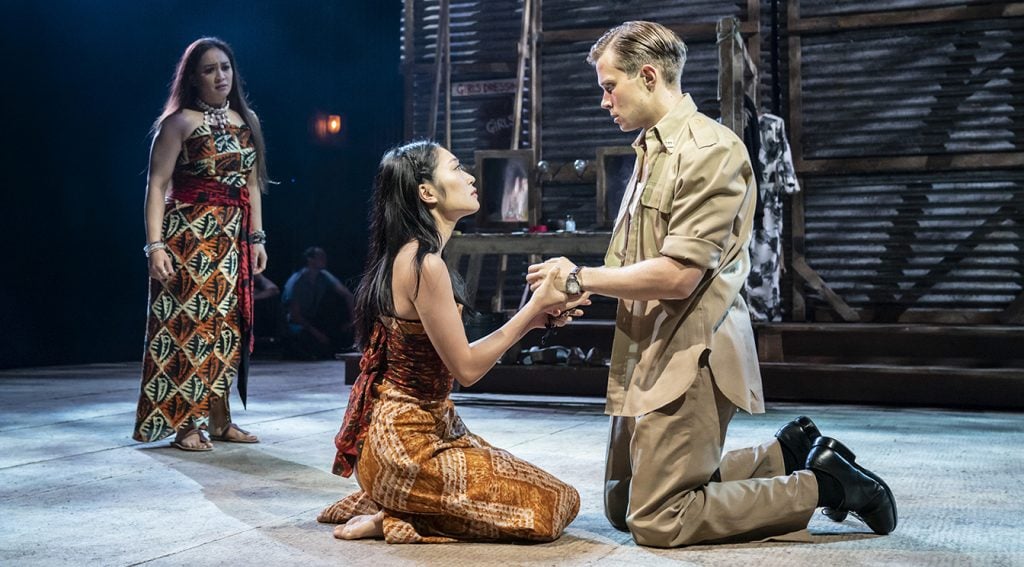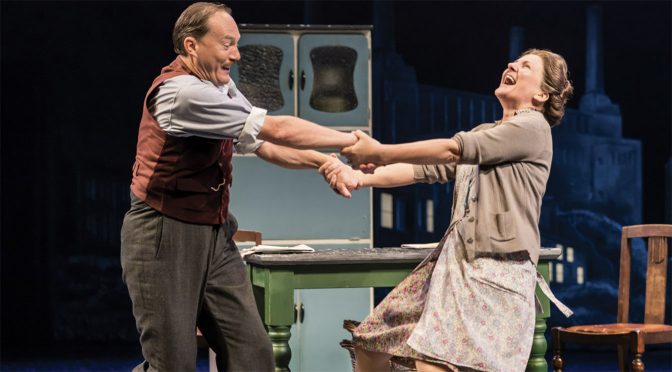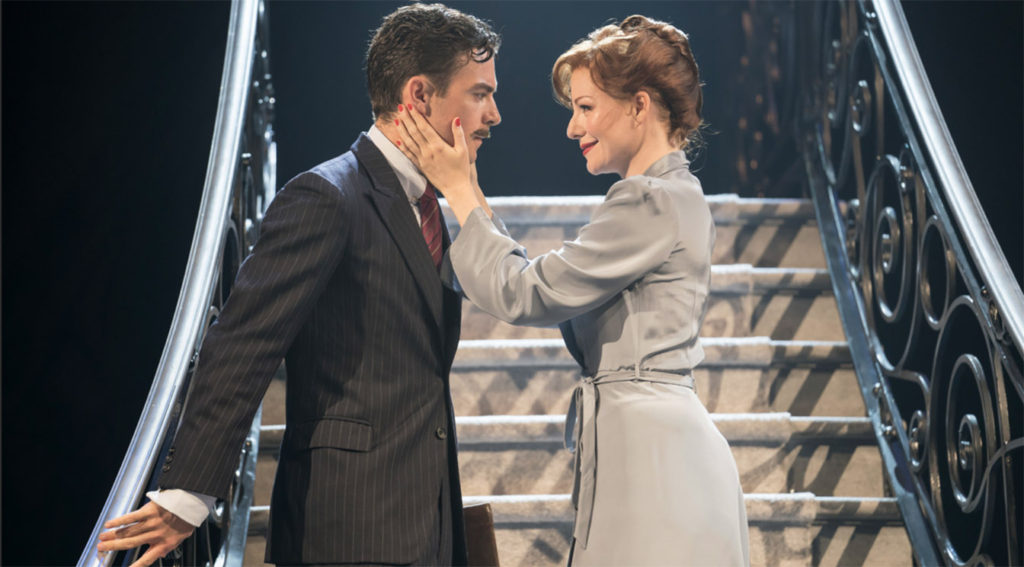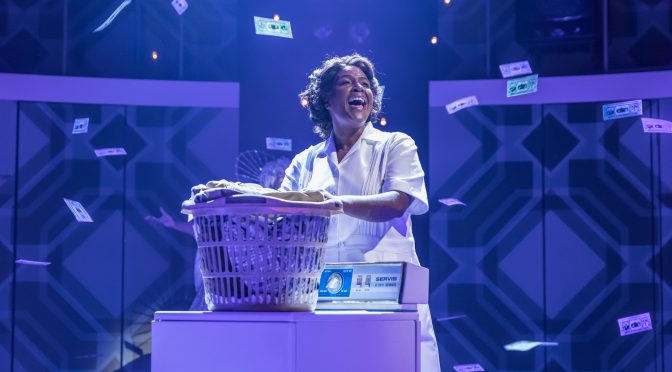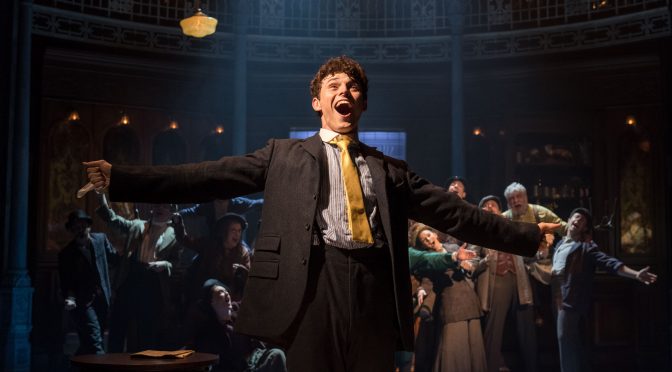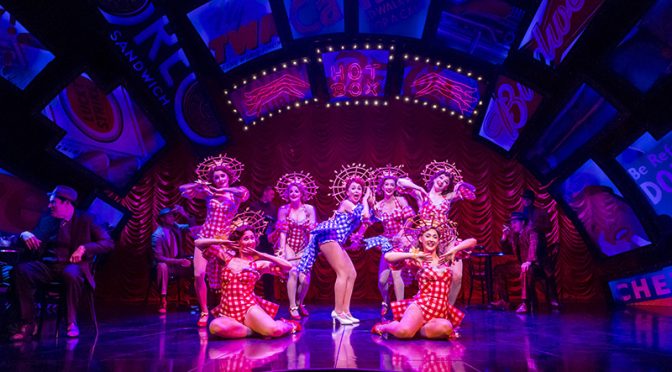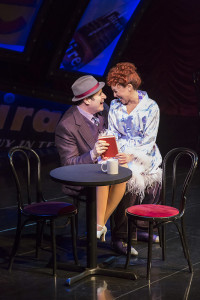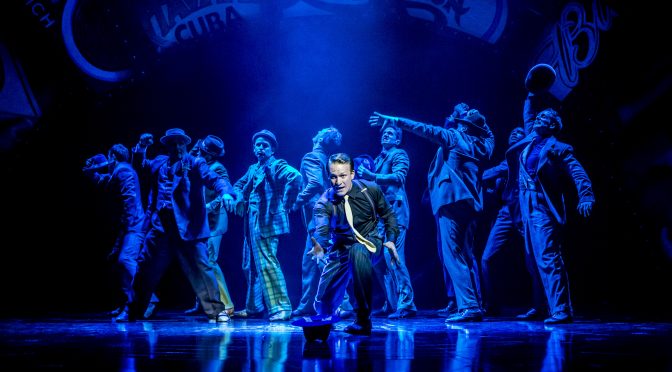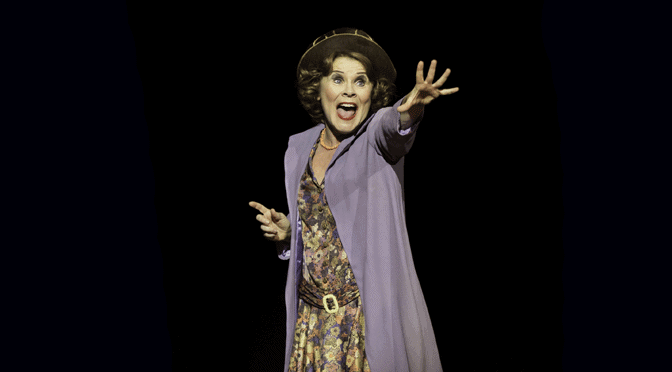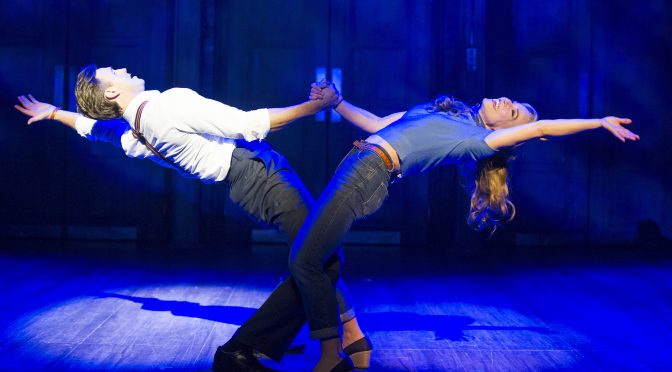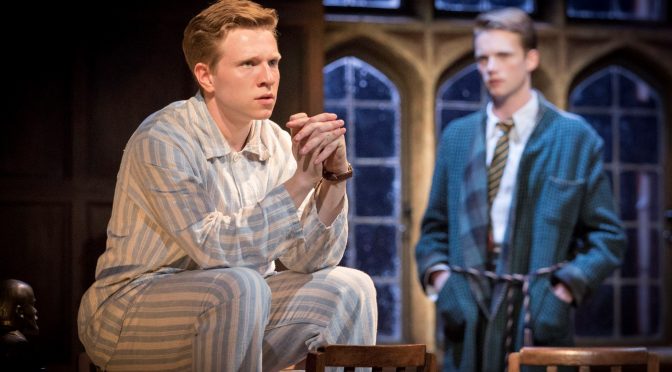Billed as a ‘new’ Ira and George Gershwin show when it premiered in 1992, based on the musical Girl Crazy but with extra songs, Crazy for You is as solid a piece of theatre as you could wish for. Ken Ludwig’s book uses a neat plot that provides plenty of comedy as well as room for gorgeous tunes and great dance numbers. In short, it’s a safe bet, but add a star like Charlie Stemp and this production becomes special.
Stemp plays Bobby Child, desperate to break out of banking and into a dance career, pointing out how great theatre is along the way (always nice to hear). This involves Bobby putting on his own show – literally saving a theatre – while masquerading as a producer for comic effect. And there’s romance, with Bobby falling in love with (guess) the show-within-a-show’s leading lady. Simple? Remember, Stemp must be a comic and romantic lead, while singing and dancing… and he really can do it all.
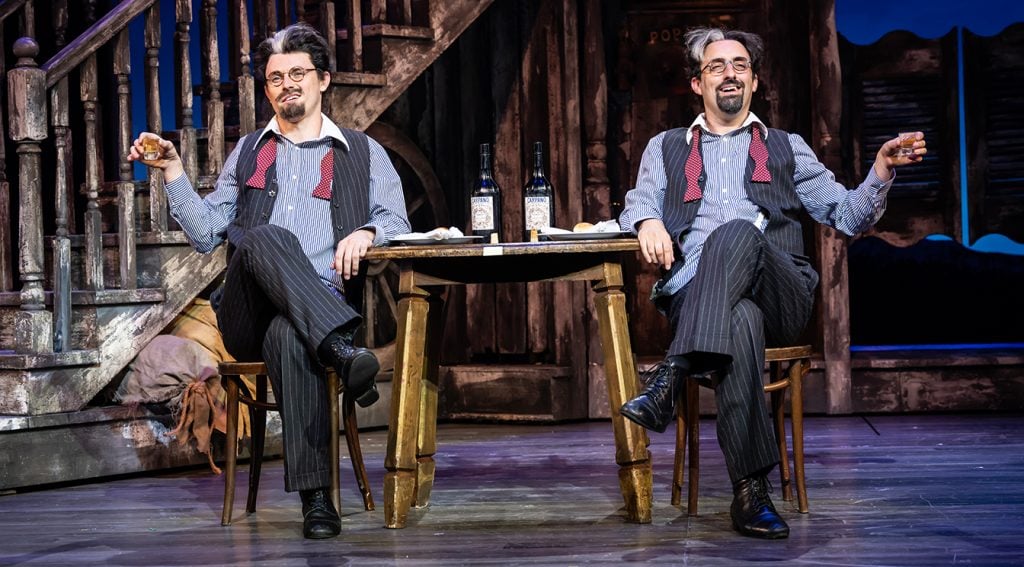
Make no mistake – this whole cast is strong. Carly Anderson is leading lady Polly, sounding sweet and graceful with every move (she wears slacks like a ball gown). Polly has independence, but you can’t escape that the role is there to provide swoon and Anderson delivers. Natalie Kassanga’s Irene has her eye on Bobby, with fun results – her voice is so strong you really want the role expanded. And there’s a great comic turn from Tom Edden as a theatre impresario Bobby impersonates. The humour throughout is old-fashioned (bolstered by strong cameos from Sam Harrison and Rina Fatania as two restaurant reviewers), but thoroughly entertaining.
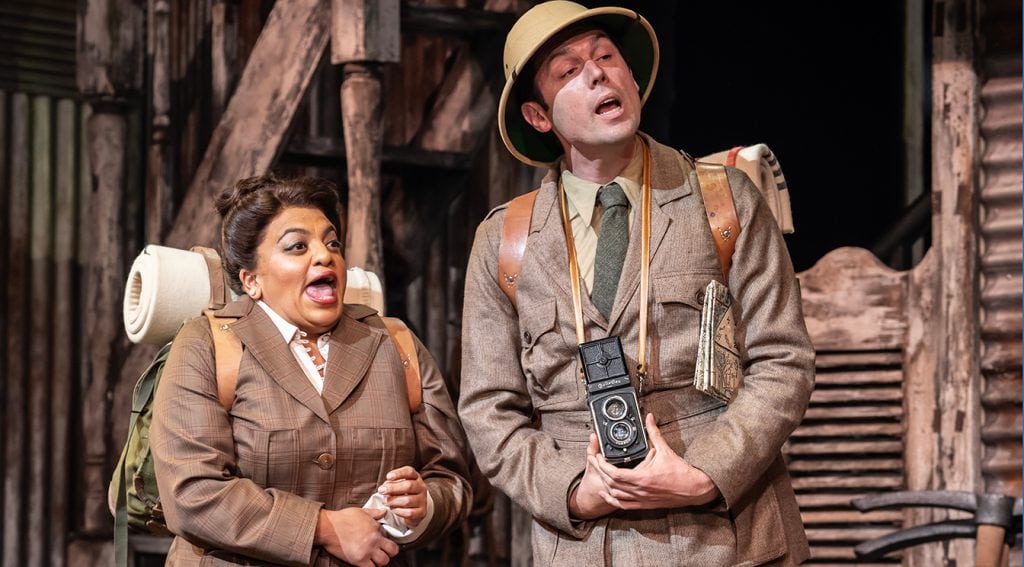
Susan Stroman, the show’s original choreographer, adds director to her credits for this revival (which began at the Chichester Festival Theatre) and paces the action with confidence. Excitingly, Stroman’s knowledge of the piece results in some risks: the dancing is a bit bonkers! Occasionally fevered, full of wit as well as plenty of acrobatics, it is value-for-money stuff. There are new orchestrations, too (from Doug Besterman and Mark Cumberland), which emphasise percussion to a bold degree.
Best of all, Stroman uses her star for all he’s worth – and that is a lot. Aside from being one of the best singers and dancers around, with that prized skill of making it all look easy, Stemp can get a laugh and make emotions genuine. Crazy for You isn’t Shakespeare (despite a touch of Twelfth Night with its wooing in disguise), but the love affair convinces. Maybe Stemp appeals because he seems to be having so much fun? That enjoyment makes him perfect casting for a role that focuses on a love of theatre and gives the whole production an infectious joy.
Until 20 January 2024
Photos by Johan Persson

